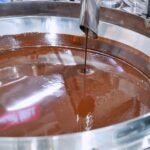Ssangyong C&E ships 30,000 tons of low-carbon limestone cement to the US, the first Korean firm to export eco-friendly cement to the US market
Ssangyong C&E Co., a leading South Korean cement maker, said on Monday it has exported 30,000 tons of low-carbon limestone cement to the US – the first Korean company to export eco-friendly cement to the US market.
The company said it shipped the volume, classified in the US as type IL, with lower clinker content than general cement or type 1 portland cement, last week.
Cement clinker is a solid material produced in the manufacture of Portland cement as an intermediary product. Carbon dioxide, a greenhouse gas, is emitted during the cement clinker manufacturing process.
Ssangyong said it developed eco-friendly cement, after three years of research, which reduced carbon emissions by 6% compared to general-purpose cement by slashing the clinker content and instead using more of limestone fine powder.
The company said its limestone cement has the same compressive time and strength as general-purpose cement.
Ssangyong C&E ships 30,000 tons of low-carbon limestone cement to the US
SSANGYONG PASSES PCA QUALITY TEST
Ssangyong C&E said its limestone cement has passed the rigorous quality test by the Portland Cement Association (PCA) and obtained certificates for use as eco-friendly cement in three US states – Washington, Idaho and Oregan.
Demand for low-carbon eco-friendly cement in the US is increasing in line with the government’s carbon-neutral initiative.
The use of eco-friendly cement accounted for around 25% of the total cement use in 2022 in the US. In the first quarter of this year, the ratio rose to 53%.
Limestone cement accounts for 97% of the US eco-friendly cement market, according to Ssangyong.
TO TRIPLE 2025 US EXPORT
Ssangyong C&E aims to export 200,000 tons of limestone cement to the US market this year and increase its export volume to over 600,000 tons next year.
Ssangyong C&E plant in Donghae, Korea
Earlier this year, Ssangyong obtained the Environmental Product Declaration (EPD) certificate, from US authorities for its general cement products bound for the US.
EPD, often compared to nutrition labels, shows the life-cycle impact, including greenhouse gas impact and stratospheric ozone depletion and water systems impact, of all components of a concrete and cement mix.
Ssangyong began exporting cement to the US in 1998, and as of last year, its cumulative exports to the country reached 19 million tons.
“Currently, Korea has only three types of the KS national standards for mixed cement: slag (KS L 5210), fly ash (KS L 5211) and pozzolana (KS L 5401). To help reduce carbon emissions, conditions must be created where various types of eco-friendly cement, including limestone cement, can be used, as in the US,” said a Ssangyong official.
By Hyung-Chang Choi
calling@hankyung.com
In-Soo Nam edited this article.














